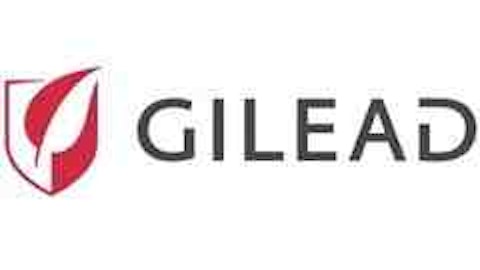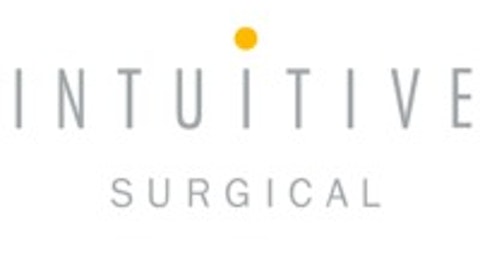When the FTC and the U.S. Supreme Court start breathing down your neck it’s not a pleasant thing, and could become very expensive for certain companies. Yet, not many people are talking about the trouble that generic and brand-name drug makers are finding themselves in.
Uncovering a costly practice
Last year, the FTC uncovered a number of agreements between large pharma and generic drug companies, which it called “pay-for-delay.” This practice involved large pharmaceutical companies with blockbuster drugs paying generic drug companies to extend the launch of those drugs. The FTC estimates that this practice is costing consumers more than $3.5 billion annually, due to paying higher drug prices.
As a result, the FTC has presented its case to the Supreme Court that these types of agreements are unlawful. However, on Monday, the Supreme Court ruled that these agreements do not violate anti-trust laws, but that the FTC could present illegal cases on an individual basis. In theory, this makes the FTC’s job more difficult as it must prove that certain agreements cost both the government and consumers money.
How does this affect you?
The findings on Monday might be an overall win for large pharma, but it could be a massive loss for individual companies – those that are violating the law to the largest degree. Such is the case with FTC v. Actavis Inc (NYSE:ACT), a frequently referenced case that began back on Oct. 3, 2012.
Reportedly, Actavis Inc (NYSE:ACT) agreed to a deal with AbbVie Inc (NYSE:ABBV) for its drug Androgel. This drug produced more than $1.2 billion last year, costing patients over $230 for a three month supply. Actavis Inc (NYSE:ACT) wasn’t expected to begin selling it for another two years, but last year AbbVie agreed to pay the generic company $19-$30 million per year to prolong the launch (five years).
Remember, Actavis would not sell the product right now, but would sell it for a discounted price when able. Actavis’ margins would not be as high either, as generic drugs share more of the profits with pharmacies, which is evident when looking at margin expansion for pharmacies over the last year.
Therefore, $19-$30 million per year might be what Actavis Inc (NYSE:ACT) would profit from Androgel per year. You might ask, “How does this affect me?” The answer is quite simple: first, we don’t know how many such deals exist. There could be 10 such deals where a large pharma company is paying Actavis and other generic drug companies a set amount to prolong a launch. As a result, this incorrectly reflects on the company’s margins (and profits) – if Actavis is receiving $20-$100 million per year and is not having to manufacture, market, or reimburse revenue than it is free money in the bank.
During the last 12 months, Actavis Inc (NYSE:ACT) reported revenue of $6.29 billion and had operating income of $814 million. However, is this correct? If $20-$100 million is simply “given” to the company, then does this distort the “real” fundamentals of the company? My answer is, of course it does; we just don’t by how much. Once we do know, this could profoundly affect the value of such companies.
FTC v. Pharma
The FTC is going to come down hard on Actavis, and AbbVie Inc (NYSE:ABBV), and who knows how much it will cost the companies or what we will learn. Supposedly, these deals stretch so far that it could take many years to uncover. The FTC has some heavy hitters in its corner, including Obamacare and the nation’s largest doctor group, the AMA.
This group is claiming that Pfizer Inc. (NYSE:PFE) and Actavis had a similar deal. The AMA claims that Pfizer made $10.7 billion a year with Lipitor and maintained its exclusiveness by paying off generic drug companies, including Actavis. Therefore, we must ask the question, how much was Actavis paid from Pfizer Inc. (NYSE:PFE) (among the others), and how much did it affect fundamentals?
We’d be crazy to think that Actavis Inc (NYSE:ACT), AbbVie Inc (NYSE:ABBV), and possibly Pfizer Inc. (NYSE:PFE), are the only culprits in this large scheme. Yet, these are the companies that are making the headlines, with Actavis trading lower by 1.25% and AbbVie Inc (NYSE:ABBV) lower by 0.8% on Monday. My impression is that this whole ordeal is going to get ugly, now that the FTC has been granted permission to go to war with the pharmaceutical industry.
Conclusion
In my opinion, this practice has profoundly distorted the true value of generic companies. Those generic companies have enjoyed operating margins that most likely don’t reflect the true margins of their business. Therefore, the market might be valuing these companies incorrectly.
While I don’t know how much these valuations may be off by, I’ll use a rule of thumb: if the FTC has evidence that this practice has cost the consumer $3.5 billion annually and the U.S. government more than $5 billion over a three year period, then that money has to be made up. This is money that will be given back in fees and lawsuits, and in time, might create laws where this income won’t be created. Thus, certain companies will be significantly affected. The big question is which ones? Obviously, we don’t know all of them, but we do know Actavis Inc (NYSE:ACT) and AbbVie Inc (NYSE:ABBV), and these two might very well pay the price.
The article “Pay-For Delay” Was Fun While It Lasted originally appeared on Fool.com and is written by Sherrie Stone.
Sherrie Stone has no position in any stocks mentioned. The Motley Fool has no position in any of the stocks mentioned. Sherrie is a member of The Motley Fool Blog Network — entries represent the personal opinion of the blogger and are not formally edited.
Copyright © 1995 – 2013 The Motley Fool, LLC. All rights reserved. The Motley Fool has a disclosure policy.





